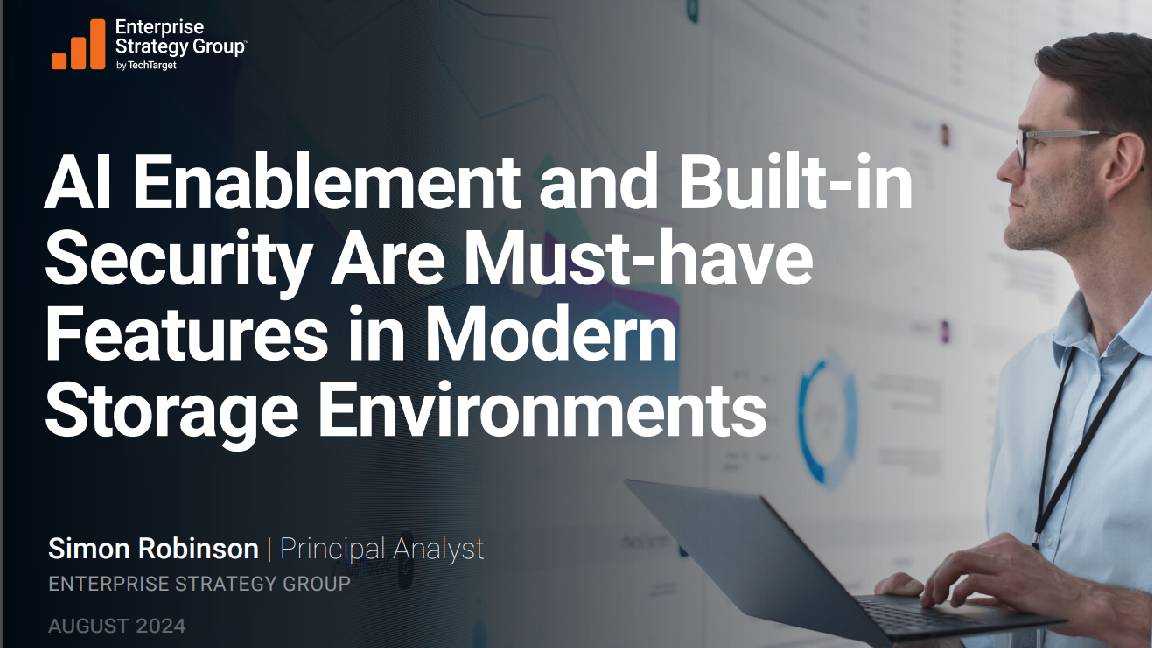Public sector improvements, infrastructure investment, and AI pothole repairs: Tech industry welcomes UK's “ambitious” AI action plan
The new policy, less cautious than that of the previous government, has been largely welcomed by experts


The UK government has officially unveiled its AI Opportunity Action Plan, promising a greater focus on the opportunities of the burgeoning technology rather than the risks.
Under the new industry focus, the Labour government plans to implement all 50 recommendations set out by Matt Clifford in his AI Opportunities Action Plan, commissioned by technology secretary Peter Kyle last year.
Announcing the strategy, prime minister Keir Starmer said the country’s AI industry “needs a government that is on their side” if it’s to unlock economic value from the technology.
“In a world of fierce competition, we cannot stand by,” he said. “We must move fast and take action to win the global race.”
"Our plan will make Britain the world leader. It will give the industry the foundation it needs and will turbocharge the Plan for Change. That means more jobs and investment in the UK, more money in people’s pockets, and transformed public services. That’s the change this government is delivering."
As part of the move, the government plans to create dedicated “AI growth zones” where planning permission for infrastructure projects will be fast-tracked and given improved access to energy grids. The first of these is set to be launched in Culham, Oxfordshire.
Similarly, the government has pledged to increase public compute capacity by twentyfold, with work starting on a new national supercomputer.
Sign up today and you will receive a free copy of our Future Focus 2025 report - the leading guidance on AI, cybersecurity and other IT challenges as per 700+ senior executives
A new team will be set up to focus on the opportunities of AI and build the UK’s sovereign capabilities, while a new National Data Library will help harness public data and support AI development.
There will also be a new dedicated AI Energy Council chaired by the science and energy secretaries, which will work with energy companies with the aim of tapping into technologies like small modular reactors (SMRs).
SMRs have been growing in appeal at big tech companies, with a host of major industry players such as Oracle and Google Cloud seeking to develop their own in-house nuclear capabilities.
Industry experts believe these reactors could play a key role in alleviating strain placed on energy grids by data center infrastructure, providing clean energy on-site.
"AI is a powerful tool that will help grow our economy, make our public services more efficient and open up new opportunities to help improve living standards," said chancellor Rachel Reeves.
"This action plan is the government’s modern industrial strategy in action. Attracting AI businesses to the UK, binging in new investment, creating new jobs and turbocharging our Plan for Change."
AI Action Plan welcomed by industry - but some have reservations
The plan has been welcomed by industry stakeholders across the UK. David Hogan, VP for enterprise, EMEA at Nvidia described the move as a “clear-sighted and ambitious policy initiative to establish the UK as a global leader”.
“Delivering these commitments can boost economic prosperity, enhance public services, and foster the growth of a thriving startup ecosystem”.
A key focus will be placed on driving AI adoption in the public sector under the new plans.
The prime minister specifically highlighted the role AI can play in driving public sector efficiency. This includes saving time on administrative tasks that can be reassigned to improve public services or speeding up planning consultations.
RELATED WHITEPAPER

Other potential use-cases include AI-based analysis of camera footage to identify and speed up pothole repairs and support for healthcare professionals to provide faster and more accurate medical diagnoses.
While these are positive use-cases, Gaia Marcus, director of the Ada Lovelace Institute, warned that the government will have to work hard to maintain public confidence.
"The public... have nuanced and often strong views on the use of their data, particularly in areas such as health," she said.
"In light of past backlash against medical data sharing, the government must continue to think carefully about the circumstances under which this kind of sharing will be acceptable to the public."
Sam Robinson, AI policy lead and senior researcher at the Social Market Foundation, praised the plans to speed up planning permission, but called on the government to address the 'absurdly high' cost of industrial electricity.
However, he welcomed the plans to harness AI more in the public sector.
"The UK is uniquely well placed to demonstrate how AI can improve the productivity and quality of public services, and technology secretary Peter Kyle is building a reputation for the UK as the country that is most ready and willing to seize the opportunity," he said.
Jacob Beswick, director of AI governance at Dataiku, said this may be easier said than done. Lingering concerns over the use of public data could hamper progress, he warned.
"Some significant challenges with a public sector AI policy remain, specifically related to how the UK public sector is organized, which makes it nearly impossible to find out who is using AI; what data exists, ownership, and access; and finally the power dynamics between central departments pushing an AI agenda and departmental autonomy," he said.
"The siloed nature of the public sector isn’t just a problem between departments, but also within departments: data silos within departments, for example between different hospitals and NHS Trusts, can seriously hamper attempts not just to create effective AI models, but to create a generally digital, data-driven service."
Emma Woollacott is a freelance journalist writing for publications including the BBC, Private Eye, Forbes, Raconteur and specialist technology titles.
-
 Hackers are using LLMs to generate malicious JavaScript in real time
Hackers are using LLMs to generate malicious JavaScript in real timeNews Defenders advised to use runtime behavioral analysis to detect and block malicious activity at the point of execution, directly within the browser
-
 Developers in India are "catching up fast" on AI-generated coding
Developers in India are "catching up fast" on AI-generated codingNews Developers in the United States are leading the world in AI coding practices, at least for now
-
 Half of agentic AI projects are still stuck at the pilot stage – but that’s not stopping enterprises from ramping up investment
Half of agentic AI projects are still stuck at the pilot stage – but that’s not stopping enterprises from ramping up investmentNews Organizations are stymied by issues with security, privacy, and compliance, as well as the technical challenges of managing agents at scale
-
 What Anthropic's constitution changes mean for the future of Claude
What Anthropic's constitution changes mean for the future of ClaudeNews The developer debates AI consciousness while trying to make Claude chatbot behave better
-
 Satya Nadella says a 'telltale sign' of an AI bubble is if it only benefits tech companies – but the technology is now having a huge impact in a range of industries
Satya Nadella says a 'telltale sign' of an AI bubble is if it only benefits tech companies – but the technology is now having a huge impact in a range of industriesNews Microsoft CEO Satya Nadella appears confident that the AI market isn’t in the midst of a bubble, but warned widespread adoption outside of the technology industry will be key to calming concerns.
-
 Workers are wasting half a day each week fixing AI ‘workslop’
Workers are wasting half a day each week fixing AI ‘workslop’News Better staff training and understanding of the technology is needed to cut down on AI workslop
-
 Retailers are turning to AI to streamline supply chains and customer experience – and open source options are proving highly popular
Retailers are turning to AI to streamline supply chains and customer experience – and open source options are proving highly popularNews Companies are moving AI projects from pilot to production across the board, with a focus on open-source models and software, as well as agentic and physical AI
-
 Microsoft CEO Satya Nadella wants an end to the term ‘AI slop’ and says 2026 will be a ‘pivotal year’ for the technology – but enterprises still need to iron out key lingering issues
Microsoft CEO Satya Nadella wants an end to the term ‘AI slop’ and says 2026 will be a ‘pivotal year’ for the technology – but enterprises still need to iron out key lingering issuesNews Microsoft CEO Satya Nadella might want the term "AI slop" shelved in 2026, but businesses will still be dealing with increasing output problems and poor returns.
-
 OpenAI says prompt injection attacks are a serious threat for AI browsers – and it’s a problem that’s ‘unlikely to ever be fully solved'
OpenAI says prompt injection attacks are a serious threat for AI browsers – and it’s a problem that’s ‘unlikely to ever be fully solved'News OpenAI details efforts to protect ChatGPT Atlas against prompt injection attacks
-
 Google DeepMind CEO Demis Hassabis thinks startups are in the midst of an 'AI bubble'
Google DeepMind CEO Demis Hassabis thinks startups are in the midst of an 'AI bubble'News AI startups raising huge rounds fresh out the traps are a cause for concern, according to Hassabis
